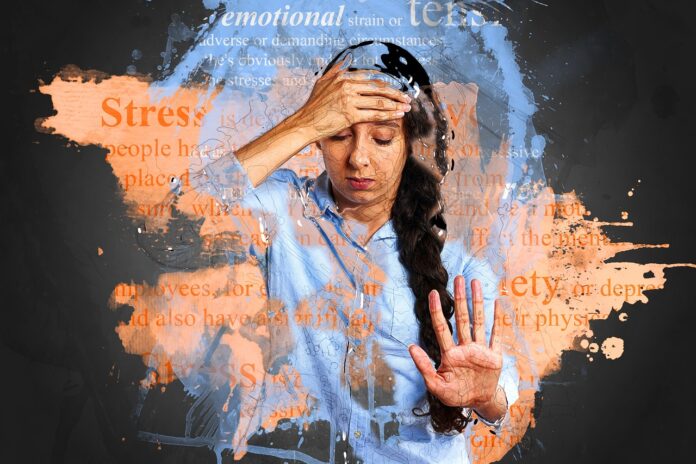With Christmas just around the corner, the holiday cheer can sometimes be accompanied by a dash of stress.
As we prepare for the festive seasons, Dr Katherine Hall, the sleep psychologist for Happy Beds wants to shed light on how Christmas cortisol levels can wreak havoc on your sleep.
‘Tis the Season for Stress: Sleep Psychologist Shares the Impact on Slumber 🎄😴
Dr Katherine Hall explains below, “Cortisol, often tagged as the ‘stress hormone,’ assumes a pivotal role in the body’s functions and stress response, intricately tied to the sleep-wake cycle. During this time of year, factors like heightened expectations, gift-shopping stress, social gatherings, and the pressure of creating picture-perfect moments contribute to an uptick in cortisol levels.
“This hormonal surge can disrupt the delicate balance of your sleep-wake cycle, leading to issues like insomnia, reduced sleep time, and morning grogginess. In response, your body may produce more cortisol to ‘wake you up,’ perpetuating the cycle. Unfortunately, this forms a seasonal stress pattern that many experience during the festive period.”
Silent Night, Restful Night: 7 Cosy Ways to Conquer Cortisol Before Bedtime 😴🌙
Dr Katherine Hall has then shared her solutions for lowering your stress levels below:
1. Soak up at least 17 minutes of sunshine every day. ☀️
Numerous studies highlight that a weekly total of 120 minutes immersed in nature significantly lowers cortisol levels. When you break it down, that’s a manageable 17 minutes per day—an ideal opportunity to step outside, particularly during your lunch break while daylight still graces the sky. Or on a weekend if you’re sick of online Christmas shopping, wrapping presents, or cleaning the house in time for the big day.
Additionally, a separate study discovered that being outdoors can reset your internal body clock to be more in tune with nature. Those who spent more time outdoors discovered their sleep hormone, known as melatonin, started to rise at sunset, around two hours earlier than their usual bedtime, meaning they got to sleep much faster. They also woke earlier the following day, alongside the sunrise.
2. Curb your Christmas movie marathon two hours before bed. 🍿
The blue light emitted from phone screens and TVs negatively disrupts melatonin production which is key to inducing that soothing drowsiness needed for a restful night. Therefore, the later you watch TV, the more you’re delaying your natural wake cycle.
To safeguard your sleep quality, consider turning off screens at least an hour before bedtime, with an optimal two-hour window for the most rejuvenating sleep experience. It’s a small adjustment with a big payoff for your well-deserved rest.
3. Read just six pages of a book to lower your stress levels by 68%. 📚
A study by The University of Sussex has revealed that reading can reduce stress by up to 68%. However, what is most impressive is that the study revealed that participants only needed to read for six minutes before their stress levels were reduced. Considering the average reading speed of one page per minute, this translates to a modest six pages for an accessible stress-management routine. And better yet, you could read a festive book to get in the spirit.
4. Stroke your pet for 10 minutes. 🐶
Similarly, engaging in a brief 10-minute session of play or gentle strokes has been shown to quickly reduce your cortisol levels. This insight comes from a study conducted by Washington State University and was conducted on students facing heightened cortisol levels during exams. Those who directly interacted with dogs and cats had lower cortisol levels allowing them to feel more focused for their exams.
5. Keep Christmas presents out of your bedroom. 🎁
Clutter is a known stressor that can make it hard for you to fall asleep. Therefore, you should always keep Christmas presents out of your bedroom as they serve as a visual cue for unwrapped gifts, or other pending shopping tasks.
6. Limit your alcohol intake, and don’t drink in the last three hours of the night. 🍷
Amidst the festive cheer, it’s tempting to indulge in holiday spirits, however, not many people are aware of the negative consequences that a Christmas tipple can have on your slumber. Whilst alcohol may offer a momentary sedative effect, it impacts your sleep cycle by interfering with your brain’s sleep-regulating chemicals, making your sleep lighter and less restorative. You’re likely to wake up in the morning feeling unrested even if you got your full eight hours of shut eye.
Additionally, alcohol can cause dehydration, which can lead to snoring, dry mouth, and other sleep disturbances – all of which lead to sleep deprivation. You should therefore cut back on how much you drink if you’re craving a good night’s sleep, and stop drinking at least three hours before bed.
7. Lying in bed and stressed? Rub the inner part of your wrist for 2-3 minutes. 🧘
If in the quiet hush of the night, the stress of Christmas comes to your mind as you lay in bed, try this calming technique to lower your cortisol levels. Gently rub the inner part of your wrist for a mere 2-3 minutes, finding solace in the magic of touch. Here lie the enchanting acupressure points—Heart 4, 5, 6, and 7 – each of which is an acupressure point that can help alleviate stress.
Help keep news FREE for our readers
Supporting your local community newspaper/online news outlet is crucial now more than ever. If you believe in independent journalism, then consider making a valuable contribution by making a one-time or monthly donation. We operate in rural areas where providing unbiased news can be challenging. Read More About Supporting The West Wales Chronicle






















